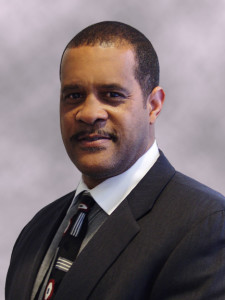University of Maryland Langley Distinguished Professor
Alexander Brown Center for Adaptive Aerospace Vehicle Technology and Morpheus Laboratory
100 Exploration Way, Hampton, VA 23666
Tel: +1 (757) 325-6830; Fax: +1 (757) 325-6701
Education
- Ph.D., Mechanical Engineering, Massachusetts Institute of Technology, 1982
- M.S., Mechanical Engineering, Massachusetts Institute of Technology, Cambridge, Massachusetts, 1979
- B.S., Mechanical Engineering, Massachusetts Institute of Technology, Cambridge, Massachusetts, 1977
Work ExperienceÂ
- University of Maryland Langley Professor, National Institute of Aerospace, 2003 – Present
- Chief Technology Officer, iProvica, Inc., 2001-2004
- Chief Technology Officer, PhotoSense, Inc., 1998 – 2001
- Chief Engineer, Boston University Photonics Center, 1995 – 2004
- Executive Vice President, Optron Systems, Inc., 1992-1995
Research Interests
- Aerospace-relevant smart materials
- Flapping-wing airfoil design
- Passive-wing morphing
- Wing-load morphing for long-endurance flight
- Wing-lift distribution controls
- Space-mirror shape controls
- Conformal sensors
- Distributed-parameter methods
- Active boundary-layer control
Current Research
Unmanned Autonomous Systems (UAS) are experiencing increasing use in the public, private, and defense sector. Dr. Hubbard, and his students in the Center for Adaptive Aerospace Technology (CAAT), are working to design and build successful aerial robots for service in the private sector. Efforts to achieve this include forging new developments in actuation, modeling, morphing, configuration, and control.
Unmanned Aerial Vehicles (UAVS) that employ significantly developed UAS can be employed as robotic platforms to conduct the dull, dirty, and often-dangerous tasks, which may place humans in risk of injury. As the technology advances, UAVs and other vehicles possessing UAS, such as Unmanned Ground Vehicles (UGVs), are becoming increasingly popular surrogates for operations that might have otherwise been conducted by humans. These instruments have applications for crop surveys, atmospheric data collection, search and rescue missions, wild fire fighting, and border patrol operations. To complete these tasks, UAVs will be required to communicate effectively and efficiently with their human counterparts. To be considered successful, they should be able to assist, augment, and improve the performance of their human users, who conduct tasks in uncertain, unstructured, unpredictable, hostile, and dynamic environments.
To that end, Hubbard, with his team, is working to design, develop, and define the state-of-the-art in this field, while creating capabilities in each of the NASA Langley Revolutionary Technical Challenge (RTC) areas. They are as follows:
- RTC1: Designer Extreme Materials
- RTC4b: Digital Airspace
- RTC8: Affordable Exploration
- RTC9: Immersive Virtual Human Exploration
Publications
- Altenbuchner, C., and Hubbard, J., “Dynamic Response Characteristics of an Active Morphing Ornithopter Transmission,†AIAA Paper 2011-4951, in Proceedings of the 4th ASME/AIAA Conference on Smart Materials, Adaptive Structures and Integrated Systems, 18-21 September 2011, Phoenix, Arizona, United States
- Tummala, Y., Wissa, A., Frecker, M., and Hubbard J., “Design Optimization of a Compliant Spine for Dynamic Applications,†AIAA Paper 2011-5207, in Proceedings of the 4th ASME/AIAA Conference on Smart Materials, Adaptive Structures and Integrated Systems, 18-21 September 2011, Scottsdale, Arizona, United States
- Wissa, A., Tummala, Y., Hubbard J., Frecker, M., and Brown A., “Testing of Novel Compliant Spines for Passive Wing Morphing,†AIAA Paper 2011-5198, in Proceedings of the 4th ASME/AIAA Conference on Smart Materials, Adaptive Structures and Integrated Systems, 18-21 September 2011, Scottsdale, Arizona, United States
- Hubbard, J., Grauer, J., Ulrich, E., Pines, D., and Humbert, J.S., “System Identification of an Ornithopter Aerodynamics Model,†AIAA paper 2010-7632, in Proceedings of the AIAA Conference on Guidance, Navigation, and Control, 2-5 August 2010, Toronto, Ontario, Canada
- Hubbard, J., and Grauer, J., “Modeling of Ornithopter Flight Dynamics for State Estimation and Control,†in Proceedings of the American Automatic Control Council’s American Controls Conference, IEEE, 30 June-2 July 2010, Baltimore, Maryland, United States
- Hubbard, J.E., Spatial Filtering for the Control of Smart Structures: An Introduction. (Heidelberg, Dordrecht, London, New York: Springer-Verlag Berlin Heidelberg, 2010)
- Hubbard J., Tummala, Y., Wissa A., Frecker M., “Design of passively Morphing Ornithopter Wing Using a Compliant Spine,” in Proceedings of the AMSE Smart Materials, Adaptive Structures and Intelligent Systems (SMASIS) Conference, 28 September-1 October 2010, Philadelphia, Pennsylvania, United States
- Hubbard, J., and Ulrich, E., Faruque, I., Grauer, J., Pines, D., Humbert, J., “Control Model for Robotic Samara: Dynamics about a Coordinated Helical Turn,†in Proceedings of the American Automatic Control Council’s American Controls Conference, IEEE, 30 June-2 July 2010, Baltimore, Maryland, United States
- Hubbard, J., Ulrich, E., Grauer, J., Pines, D., and Humbert, J.S., “Identification of a Robotic Samara Aerodynamic/Multi-Body Dynamic Model,†AIAA paper 2010-8233, in Proceedings of the AIAA Atmospheric Flight Mechanics Conference, 2-5 August 2010, Toronto, Ontario, Canada
- Xu, T-B., Park, C., Kang, J.H., Guerreiro, N., and Hubbard, J., “Carbon Nanocomposite-Based Contact Mode Interdigitated Center of Pressure Sensor,†in Proceedings of the SPIE Conference on Smart Electronics, MEMS, and Nanotechnology, vol. 7646, 76460G-76460G-10,
